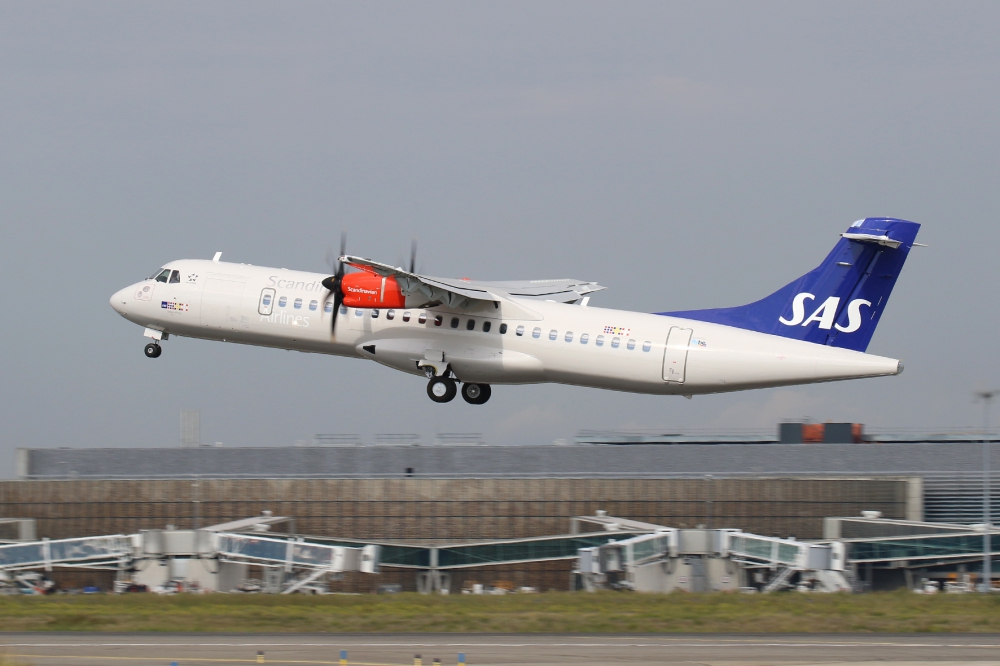World’s number one regional aircraft lessor and world’s number one regional aviation manufacturer sign landmark deal worth over US$ 2 billion
Strategic move from NAC to shape the future with the most eco-responsible and efficient regional aircraft
Paris-Le Bourget, 18 June, 2019 – Regional aircraft leasing specialist NAC and ATR, the world’s number one regional aircraft manufacturer, have today signed a Letter of Intent for 35 firm ATR -600s, with options for a further 35 and purchase rights for another 35. The deal represents a seal of long-term confidence from the number one regional aircraft lessor whose desire to focus on the most efficient and sustainable technology has led them to invest in the ATR 72-600. NAC’s recognition of the quality of the ATR programme also highlights the enduring retained asset value of the -600 series and its value proposition in the market.
Deliveries of the initial 35 aircraft will begin in 2020 and run up to 2025; the delivery schedule is optimised to ensure that market demand is best satisfied over the five-year period. This new deal cements a very successful and longstanding collaboration between NAC and ATR. Since 2010, over 100 speculative ATR aircraft orders were turned into deliveries to NAC.
NAC Chairman Martin Moller said: “To plan for a successful future, it is vital for us to invest in the very best technology, so that we can offer flexible and efficient solutions to our clients. The ATR72-600, with a significant fuel burn advantage drives lower costs and emissions making it the optimal choice for many of our clients. Aviation is moving towards a sustainable future and with this 100+ aircraft deal, we are making a strategic decision to ensure that airlines can lease and operate the most modern and eco-responsible regional aircraft available in the market.”
Stefano Bortoli, Chief Executive Officer of ATR commented: “We congratulate NAC on their forward-looking vision. It is a smart business move from NAC and one very much in line with the trends in regional aviation to connect communities and develop businesses across the globe in the most responsible and cost efficient way. To receive this order from the leading lessor in our segment, validates the value creation and quality of our product and its sustainable credentials and shows the efficiency of turboprop technology going forward. This deal clearly shows where the trend in regional aircraft is going.”
About Nordic Aviation Capital:
NAC is the industry’s leading regional aircraft lessor serving over 76 airline customers in 51 countries. The company provides aircraft to well-established carriers such as British Airways, Air Canada, LOT, Azul, Lufthansa, Garuda, Flybe, Aeroméxico and airBaltic as well as major regional carriers including Air Nostrum and Widerøe. NAC’s current fleet of almost 500 aircraft includes ATR 42, ATR 72, Bombardier Dash 8, CRJ900, CRJ1000, A220, E170, E175, E190 and E195.
About ATR:
ATR is the world number one regional aircraft manufacturer with its ATR 42 and 72 aircraft the best-selling aircraft in the less than 90-seat market segment. In 2018 the company had a turnover of US$1.8 billion. The unifying vision of the company’s 1,400 employees is to help everyone, no matter where they are in the world, to connect and develop in a responsible manner. Thanks to the efficiency of turboprop technology and the benefits of the company’s focus on continuous innovation, ATRs open more than 100 new routes every year, burn 40% less fuel and emit 40% less CO2 than regional jets. For all of these reasons, ATRs have been chosen by some 200 companies in 100 countries around the world. ATR is a joint-venture between Airbus and Leonardo.
For more information, please visit http://www.atr-aircraft.com and www.atr-intolife.com.

